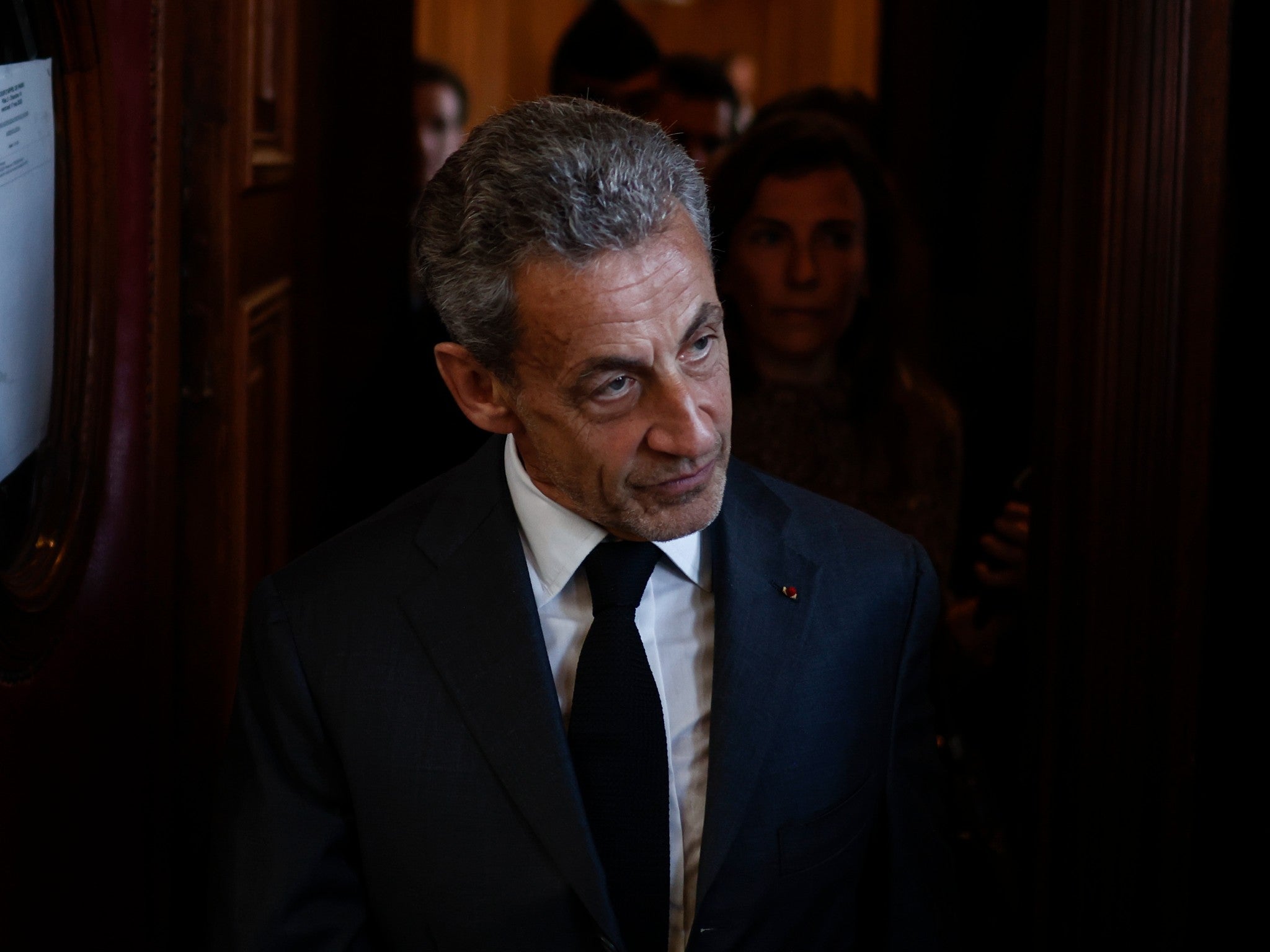Sarkozy has to wear electronic tag after losing corruption appeal
Influence peddling case one of a number of legal challenges former president faces in stunning fall from grace

Your support helps us to tell the story
From reproductive rights to climate change to Big Tech, The Independent is on the ground when the story is developing. Whether it's investigating the financials of Elon Musk's pro-Trump PAC or producing our latest documentary, 'The A Word', which shines a light on the American women fighting for reproductive rights, we know how important it is to parse out the facts from the messaging.
At such a critical moment in US history, we need reporters on the ground. Your donation allows us to keep sending journalists to speak to both sides of the story.
The Independent is trusted by Americans across the entire political spectrum. And unlike many other quality news outlets, we choose not to lock Americans out of our reporting and analysis with paywalls. We believe quality journalism should be available to everyone, paid for by those who can afford it.
Your support makes all the difference.French former president Nicolas Sarkozy has lost his appeal against a 2021 conviction for corruption and influence peddling at the Paris Court of Appeals.
The appeals court upheld a three-year prison sentence. In line with the initial ruling, it said two of those years were suspended and that Sarkozy would wear an electronic bracelet instead of going to jail for the remaining year. That is standard practice for sentences of two years or less. He will not have to serve the suspended sentence if he commits no new offense in the next five years.
The judgement marks a stunning fall from grace for the former leader – and is one of several legal battles Sarkozy has been fighting in reecnt years.
Sarkozy's lawyer said her client had committed no wrongdoing, described the ruling as "stupefying" and said he would challenge it in France’s highest court.
"Nicolas Sarkozy is innocent of the charges (he has been convicted of)," defence lawyer Jacqueline Laffont said. "We will take this all the way. This is just the beginning."
Sarkozy had arrived in court wearing a dark grey suit and appearing nervous. Following the verdict, he left without speaking to reporters. The verdict is a blow to the reputation of of a man who likes to see himself as the elder statesman of the French centre-right.
Sarkozy, 68, will challenge the appeal ruling at France's highest court, the Cour de Cassation, Ms Laffont said.
The Cour de Cassation reviews lower court rulings on the grounds of legal or procedural errors, but not factual aspects.
A lower court in 2021 found Sarkozy guilty of trying to bribe a judge after leaving office, and of peddling influence in exchange for confidential information about an investigation into his 2007 campaign finances.
Earlier this month, financial prosecutors in a separate case requested that Sarkozy face trial on charges of corruption and illegal financing of an election campaign related to alleged Libyan funding of his 2007 presidential bid.
Sarkozy has always vigorously denied wrongdoing over all of the allegations he faces.
The case at the centre of Wednesday's appeals court ruling – known in France as the "wiretapping affair" – is indirectly linked to the suspicion of illegal campaign financing.
In 2013, investigators looking into a Libyan connection wiretapped two of Sarkozy's phone lines and discovered a secret phone line used by the ex-president and his lawyer, ultimately leading to the corruption investigation.
The only other president during the course of France's 64-year-old Fifth Republic to be convicted by a court was Sarkozy's conservative predecessor, the late Jacques Chirac, who was found guilty of corruption in 2011.
Sarkozy served one five-year term as president, leaving office in 2012. His tenure was marked by the adoption of tough anti-immigration policies and attempts to reform France's economy which were overshadowed by the global financial crisis.
Reuters
Join our commenting forum
Join thought-provoking conversations, follow other Independent readers and see their replies
Comments